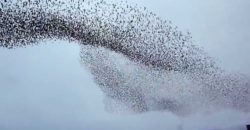poetry wednesday : will your voice return to sing?
 Poetry is the journal of a sea animal living on land, wanting to fly in the air. ― Carl Sandburg
Poetry is the journal of a sea animal living on land, wanting to fly in the air. ― Carl Sandburg
Stop. Don’t go. You don’t have to be a poet to read poetry. You don’t have to understand poetry to read poetry. You just have to be someone who reads or speaks the language in which the poetry is written (or translated) and be able to read it aloud without attachment to outcome or meaning or knowing. Or you just need to be able to listen to it, if reading isn’t an option. You just have to be a human being able to hold words in your mouth for a moment. That’s really the only prerequisite.
All meaning is individual. And whether you “like” a poem or not is immaterial, plus how dare we judge them. Understanding poems is overrated and secondary to the physicality of the words themselves. For the moment, just read the poem aloud to hear the ways the sounds feel in your head, and the ways you stumble over words, or don’t, and the ways you begin to fall in love with words again when you aren’t so hell-bent on knowing or being smart or judgey or able to diagram sentences as you did like a boss in the 7th grade.
I copy a poem by hand every morning onto a piece of college-ruled paper (never wide-ruled, because it gives me the shivers), and have for many years. Not because I am a poet. Not because I am studying poetry. Not because I am memorizing them. But because they are glimpses into a new way of seeing and expressing what we see. They are a new way of seeing words. This is also why I always invite poets to speak at my conferences. Always. And all writers, and all humans, are made up of what we see, and what we speak about, and what we express in language or otherwise, those stories we tell or don’t, the images we gather, or don’t. Silence is as valid an expression as any, if the silence involves change over time, as writing does once we realize that writing is the way meaning is revealed, not thinking about it beforehand.
So, Poetry Wednesday is back. Read this poem, aloud if at all possible. Stop trying to read it the right way. Your theatre professor isn’t listening and this isn’t an interview. This is just for you. Just let it flow like a river. And then read it again. And perhaps a third time. The fourth time? Sing it. And perhaps you will write it by hand on college-ruled paper this morning, and put it in a notebook, and maybe you will find it in a few years, and have a sudden jolt of recognition, the kind where knowing is included.
Today’s poem is called Litany. What is a litany? In one sense, it is a series of petitions for use in church services or processions, usually recited by the clergy and responded to in a recurring formula by the people. As you read, let this be a series of petitions, a recurring flow. Let yourself be both the call and the response.









